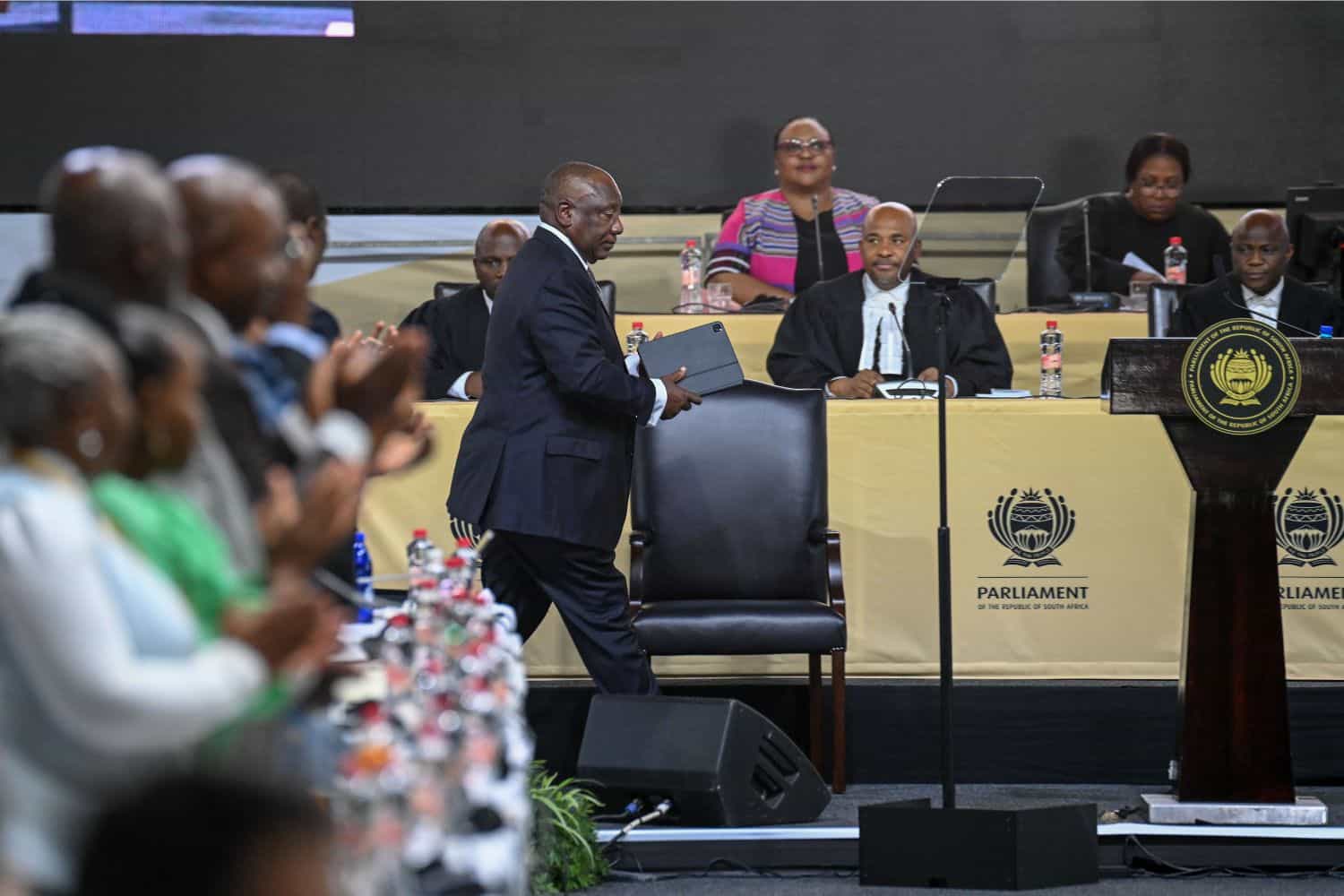Ramaphosa said the nature of the debate was not conducive to nation building.
President Cyril Ramaphosa has responded to the criticism from MPs following his recent State of the Nation Address (Sona).
Addressing Parliament on Wednesday, the president defended the plans outlined in his speech and pushed back against those who dismissed them as empty promises.
Over the past two days, MPs debated the Sona, with some expressing skepticism.
MK party MP Nhlamulo Ndhlela was particularly critical, calling the address “another episode of political theatrics.”
Ramphosa defends Sona after criticism
In his response, Ramaphosa noted the criticism but insinuated that there was a lack of good suggestions and proposals.
“Some speakers held firm to their denialism and distortions, demanded by their party positions.
“This debate illustrated the dangers of retreating to corners, isolating ourselves in ideological, cultural, racial and linguistic enclaves and hardly ever engaging beyond our immediate circles,” he said.
The president emphasised that the nature of the debate was not conducive to nation building.
He then stressed the importance of the upcoming national dialogue.
ALSO READ: Sona showdown: 6 things MPs said about Ramaphosa … and Zuma
The dialogue, he explained, would provide a platform for South Africans to discuss the country’s challenges and develop solutions.
“This is what I would have wanted to see coming out of this debate,” Ramaphosa stated.
“The journey we are embarking upon now through the national dialogue will result in concrete processes to become a more united and stronger South Africa in the face of many political, social and economic challenges, both globally and locally.”
GNU squabbles
Ramaphosa also addressed concerns regarding the government of national unity (GNU), particularly recent disputes between the ANC and DA over key policies.
Tensions flared earlier this week when Public Works and Infrastructure Minister Dean Macpherson, a DA member, and his ANC deputy, Sihle Zikalala, clashed over the Expropriation Act.
Zikalala took aim at Macpherson’s remarks on X (formerly Twitter), where he insisted that no land would be expropriated without compensation under his watch.
Seemingly in response to this, Ramaphosa acknowledged that differences of opinion within the coalition were inevitable.
“The debate also saw the expression of divergent views on various matters also by parties that make up the government of national unity, and sometimes these views were expressed quite robustly and at times quite directly and harshly.
“It is expected that the 10 political parties that make up the government of national unity, with their very different perspectives and ideological views, will not always agree and will sometimes feel the need on platforms such as this to talk to their different constituencies,” he said.
Despite internal disagreements, Ramaphosa reassured the public that the GNU parties were working well together “whether people like it or not”.
“We are finding ways of mediating our differences and we remain focused on our actions we are all committed to undertake.”
Ramaphosa backs NHI and Bela Act
Ramaphosa also hit back at claims that South Africa has made no progress in the 30 years since the dawn of democracy.
“They knew down deep in their hearts that they are talking to the wind.”
He emphasised that the current administration will not discard past efforts, but rather build on them.
The president touched on the ongoing debate over contentious laws, such as the National Health Insurance (NHI) Act and the Basic Education Laws Amendment (Bela) Act.
READ MORE: ‘Hold president to account’: Ramaphosa’s Sona emphasises unity but lacks policy detail
He said citizens should take pride in South Africa’s democracy, where laws are enacted through a careful and systematic approval process, rather than the “arbitrary whims of a ruler”.
“The Constitution is very clear. The president must assent to a bill passed by Parliament unless the president has reservations about its constitutionality.
“The Constitution does not permit that the act of assent by the president be subjected to negotiations or to the terms of an agreement between parties.”
Addressing concerns over transformation policies, Ramaphosa further reaffirmed the government’s commitment to achieving economic and social justice.
He urged those opposed to take a step back and carefully consider how the government intends to promote transformation in order to address the legacy of apartheid.
“These policies are about eradicating the differences that still exist in our society, not entrenching them.”
